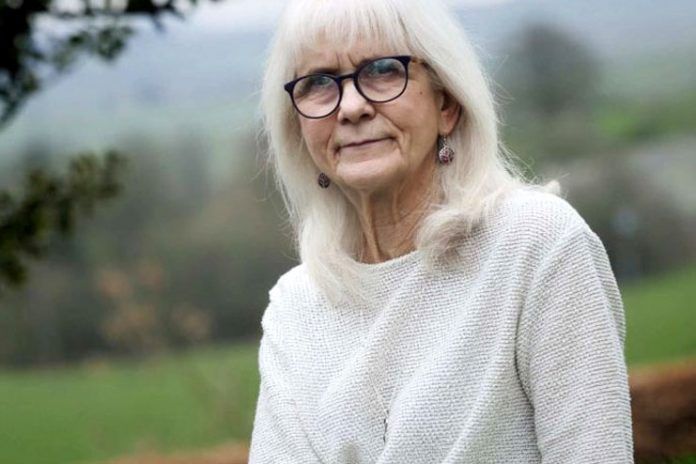Affiliate Disclaimer
Some links in this article are affiliate links. We may earn a small commission if you make a purchase through these links, at no extra cost to you. We only recommend products we find useful to our readersHow would you feel if you had the power of not feeling any kind of pain whatsoever? Sound riveting, doesn’t it? A woman from Scotland does have this superpower of not feeling any kind of pain and has even subdued her fear and anxiety because of this condition.
A new study (R) conducted by the researchers from the University College London has found that a woman in Scotland virtually feels no pain because of the mutation in one of the previously unidentified genes. Additionally, she also experiences very little anxiety and fear and does have enhanced wound healing capabilities.
These findings are expected to help the researchers pave way for new research and finding new treatments for a wide range of conditions that people are struggling with. The findings from the study were published in the British Journal of Anaesthesia.
Dr James Cox, one of the lead researchers of the study stated that they found that this woman does have a particular genotype that impacts and reduces the activity of a gene that is already considered to be a possible target for the specific pain and anxiety treatments. He further stated saying that now that they have a better idea on how this new gene works, they are hoping to further progress on the new treatment targets.
The woman sought treatment for an issue with her hip at the age of 65. The condition turned out to involve severe joint degeneration despite her experiencing no amount of pain whatsoever. At the age of 66, she had to undergo a surgery for her hands, which normally, is very painful yet she reported no amount of pain during and after the surgery.
Dr Devjit Srivastava, Consultant in Anaesthesia and Pain Medicine at an NHS hospital in the north of Scotland who is also the co-lead author of this study were the one who did find the problem altogether. The woman has even clarified to the researchers that she has never once consumed a painkiller in her life following any of the surgeries much like that of the dental procedures.
Owing to this absurd finding in the first place, the woman was referred to the pain geneticists at UCL and the University of Oxford. There, some genetic analyses were conducted from which the researchers did find two notable mutations in the genes. One of them was the microdeletion in one of the pseudogene and also one mutation in one of the neighbouring gene that is responsible for controlling the FAAH enzyme.
The FAAH gene is a very well known gene representing pain for the researchers. This is involved in the endocannabinoid signaling central to pain sensation, mood as well as the memory. Prior studies considered the “FAAH OUT” gene to be non functional which perception has now changed. The only fact in this is that there is more to what meets the eye.
In a preclinical trial with mice, it was found that the mice which lacked the FAAH gene experienced reduced pain sensation, had a faster rate of wound healing, enhanced fear extinction and even reduced anxiety.
The woman in question from Scotland experiences something similar to that. The researchers have found that in her lifelong history of cuts and burns, her injuries did heal quite quickly. Even in a conducted anxiety test, given the fact that she is an optimist, she scored the lowest in the scale for anxiety.
Apart from all this, the woman has also reported to have experienced memory lapses throughout her life in which she ended up forgetting words or even keys associated primarily with enhanced endocannabinoid signaling.
The researchers believe that there could be more people like her in the world given the fact that she herself became aware of her situation quite late in her life. She came to realize of her “condition” in her late 60s.
Emphasizing on the findings, Dr Cox said that people like her who have such rare genetic anomalies are valuable to medical research. This helps them learn how their genetic mutations impact how they experience pain altogether. He further encouraged more people who are experiencing something similar to come forward and be open about their condition.
The research team behind this study is further conducting similar studies and researches with the woman from Scotland in cell samples. This is done to have a better and broader understanding of the novel pseudogene.
According to Dr Cox, these findings at a later date could prove to be very beneficial in the field of clinical research for post-operative pain and anxiety and even chronic pain, PTSD and wound healing following the gene therapy techniques.
These findings could very well create a breakthrough in the field of medical studies. One out of two patients following a surgery to this date experiences pain even with the salient advancements in the pain killer medications and the techniques.
While the prior studies targeting the FAAH protein has been unsuccessful, this new approach with the FAAH-OUT gene could most definitely change things for the better, particularly for the post-operative pain in the patients.
These findings could help in the development of a novel pain killer discovery that could help contribute to healing the post-operative pain and even help in promoting better wound healing process. On a global scale, over 330 million patients undergo surgery on an annual basis.
The woman in Scotland have commented stating that she’ll be very glad if the anomaly she’s facing could be of help to the other people suffering and even for the medical science. Not feeling pain could definitely pan out to create a medical breakthrough efficiently.






















